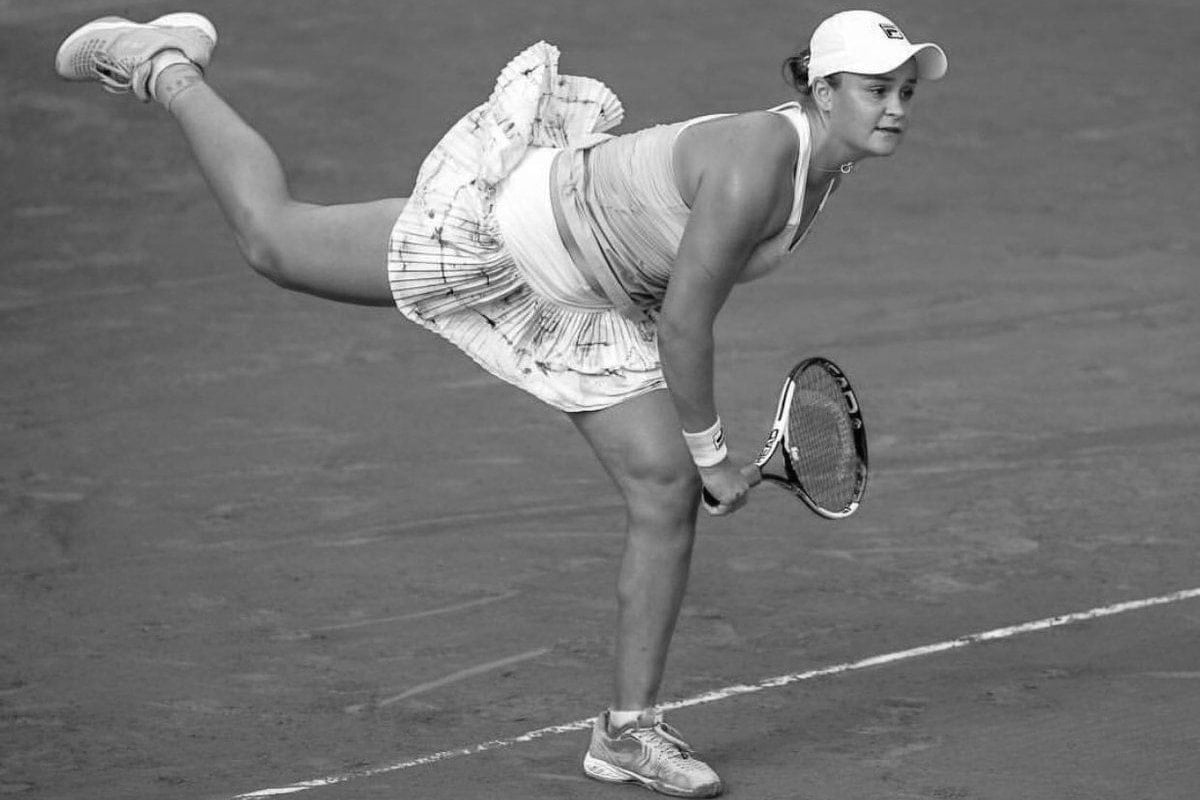
Today, Australia’s world number one ranked women’s tennis player, Ash Barty, announced her retirement at the age of 25. Career highlights consist of winning three Grand Slam titles – including Wimbledon, her life goal – an Olympic medal and being at the apex of the sport for more than two years. This is a woman who previously retired from tennis to play cricket professionally, came back, and became a part of Australian sporting folklore. Allow me to reiterate: she is only 25 years of age.
If going out on a high is the dream for those departing a career, then Barty has chosen the right moment. There is an overwhelming amount of people congratulating her and wishing her well, as should be the case. And yet, while there is understandable shock surrounding her unexpected departure, there is also a minority who felt the need to speculate as to what the ‘real’ reason for a woman retiring young may be. That is, bemoaning it may be to have a family and get married.
Barty’s retirement was always going to be a national conversation, a retrospective of her achievements and a fanfare well-deserved by adoring fans globally. Granted, it is a bigger deal than the average person leaving their job, but what Barty’s retirement has also brought forth is a wider conversation concerning the changing of individual priorities as life goes on. It is easy to see life as a simple path, where you get a ‘good job’ and make a career out of it. For both men and women alike, priorities change and life goals are altered, yet it is more often than not women who are left judged for their choices especially when it is to leave their place of work. Even more so when it has been a defining pillar of who they are.
“I know that people may not understand it and that’s ok – I’m ok with that because I know that for me, Ash Barty the person has so many dreams that she wants to chase after that don’t necessarily involve travelling the world, being away from my family, being away from my home which is where I’ve always wanted to be,” explained Barty of her retirement in a video posted to her Instagram.
“I just know in my heart, for me as a person, this is right... I know the time is right now for me to step away."
Newsflash: This is all that matters. As long as the person is happy, it doesn’t concern anyone else, and unwarranted opinions and cries of it being a ‘waste’ or ‘too soon’ are superfluous to the situation. Yes, it’s a shame many won’t ever get the chance to see her play, but it appears these comments aren’t directed at the erasure of Barty from the remainder of the WTA calendar; they feel pointed at a woman deemed as wasting her life. And that’s not ok.
Our jobs have become an extension of our identities, our hobbies now a pursuit of a ‘side hustle’ rather than as an outlet purely for enjoyment. One only needs to look at the Instagram bios of almost every career professional to see that rather than the bio being about their hobbies or interests, it is filled with their job title or place of work (guilty as charged). The attitude towards dreaming of work and not wanting to be fulfilled elsewhere is a gross hangover from the #girlboss era that needs to be let go. It is not a waste to change your goalposts as you yourself change.
The idea of knowing when to leave behind a career is something I myself have grappled with, perhaps why the reaction to Barty’s retirement has riled me to my core. My life goal has been to work for print magazines and I have worked since 15 years of age to get where I am now. To hold my work, for it to be stocked in newsagencies. It was an all-consuming goal since childhood – I imagine much like Barty’s dreaming of Wimbledon, but on a much smaller scale – and I have now reached it. I have no plans to leave this dream behind any time soon (believe me, I’m just getting started), but at some point, I know my path will change as my goals will likely orient towards my relationship and what I want from a life outside a career. I have felt like a failure for even thinking of this, as though I could never give up the magazine dream because it has been what defines me as a person and to aspire to anything else remotely different is to aspire to settlement.
I want it to be clear this piece is not intended to decry dedicating yourself to a career a bad thing. Some people live to work, and some work to live. What is necessary to remember is neither are right or wrong choices and those decisions don’t require analysis from outsider parties.
“As a person, this is what I want. I want to chase after some other dreams,” says Barty in her retirement video. We don’t yet know what those other dreams are, but what we do know is the timing is right for her.
Image: Pinterest



